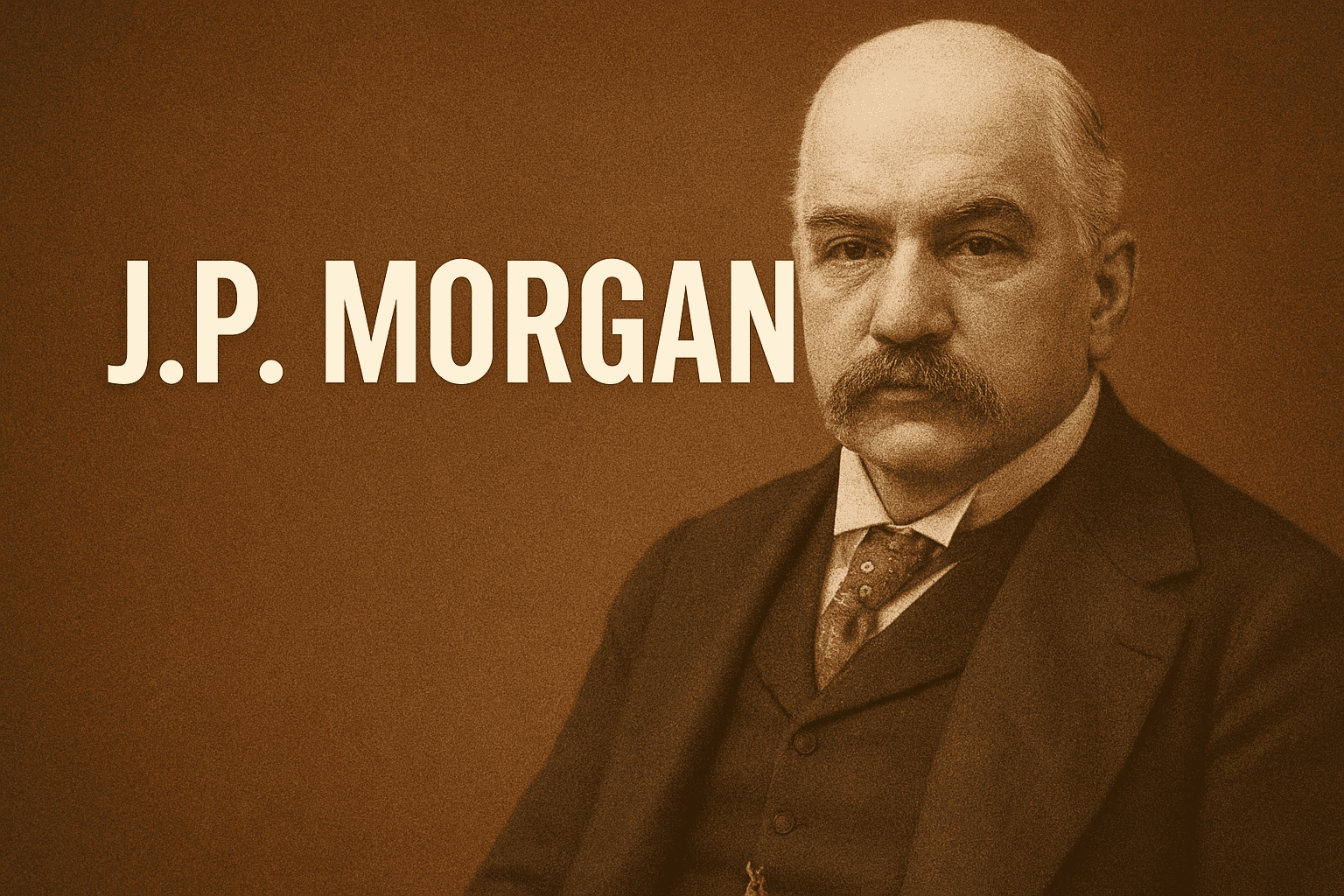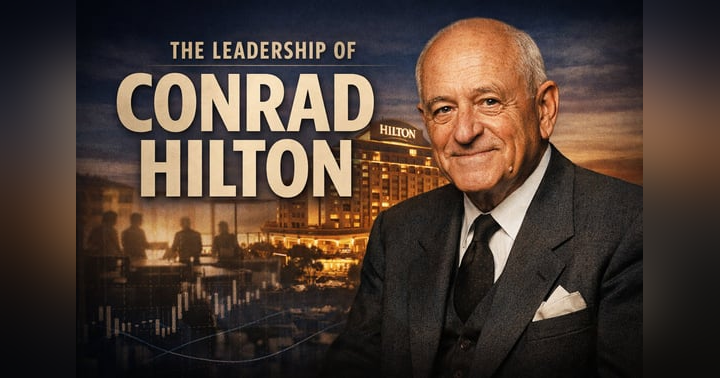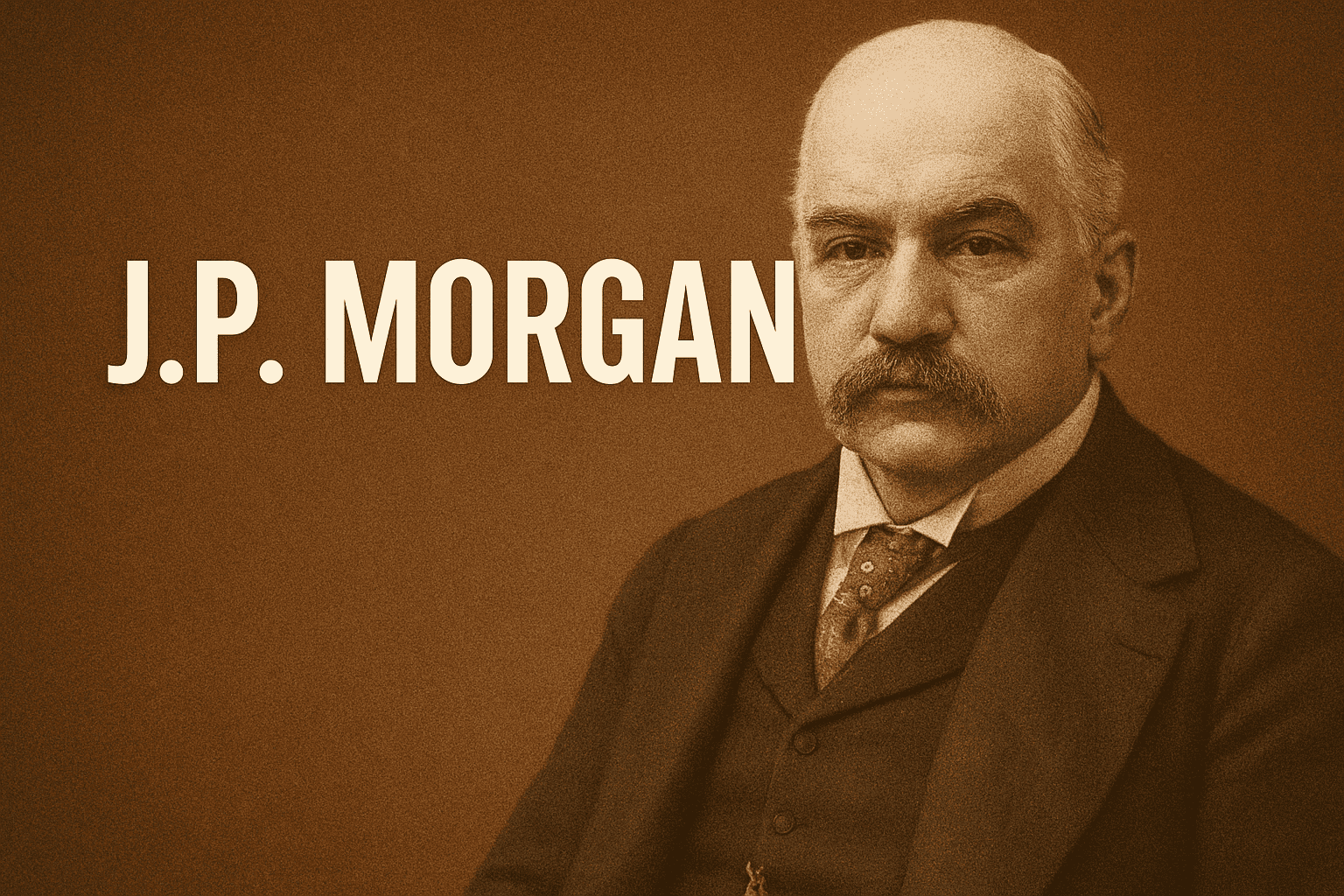J.P. Morgan’s Leadership Style: 5 Lessons Modern Leaders Can Use Today

“Go as far as you can see; when you get there, you’ll be able to see farther.” — J.P. Morgan
Few figures in American business loom as large as John Pierpont Morgan. At his peak, he didn’t just run banks—he stabilized economies, rescued the U.S. Treasury, and built the foundations of industries that still dominate today. His leadership was unapologetically forceful, sometimes controversial, but undeniably effective. For leaders today, his style offers valuable—and very practical—insights.
1. Decisiveness as a Superpower
Morgan wasn’t afraid to make decisions when others froze. During the Panic of 1907, while banks collapsed and fear spread, he locked financial leaders in his library until a solution was agreed upon. Bold, maybe even brash—but it worked. The modern takeaway? In moments of crisis, indecision is the true risk. Leaders must develop the ability to gather facts quickly, trust their instincts, and commit. Waiting for certainty is waiting too long.
2. The Power of Personal Authority
Morgan’s presence was legendary. He didn’t hide behind memos or intermediaries; he met people face-to-face, using his stature and conviction to persuade. Leadership today is different in scale, but the principle holds. Influence grows when you show up personally, look people in the eye, and deliver conviction in your voice. Emails and Slack messages won’t build trust the way presence does.
3. Big Picture, Ruthlessly Simplified
Morgan had little patience for clutter. He famously demanded one-page reports from his partners—short, clear, and to the point. Why? Because leaders must cut through noise to see signal. In our world of dashboards, metrics, and endless data, the lesson is timeless: simplify information so decisions can be made fast and with confidence.
4. Strategic Alliances Over Lone Wolf Thinking
Morgan mastered the art of pulling competitors together. He consolidated railroads, orchestrated mergers, and even created U.S. Steel, the first billion-dollar corporation. His genius wasn’t just financial—it was relational. Today’s leaders can replicate this by seeking partnerships rather than trying to dominate every battlefield alone. Collaboration, when structured wisely, creates scale and resilience.
5. Reputation as Currency
Morgan guarded his credibility fiercely. When he backed something, markets trusted it. That trust gave him leverage greater than cash alone. Modern leaders should take note: in an era where reputation can collapse with a single tweet, credibility is capital. Build it carefully. Spend it wisely. Protect it relentlessly.
Final Thoughts
J.P. Morgan led with power, presence, and precision. He wasn’t subtle, and he wasn’t soft. But he understood something that remains true: leadership is about combining authority with vision, and then moving with speed when others hesitate. You may not command the world’s largest bank, but you can adopt his timeless habits—be decisive, simplify, build alliances, and treat your reputation as your most valuable asset.








